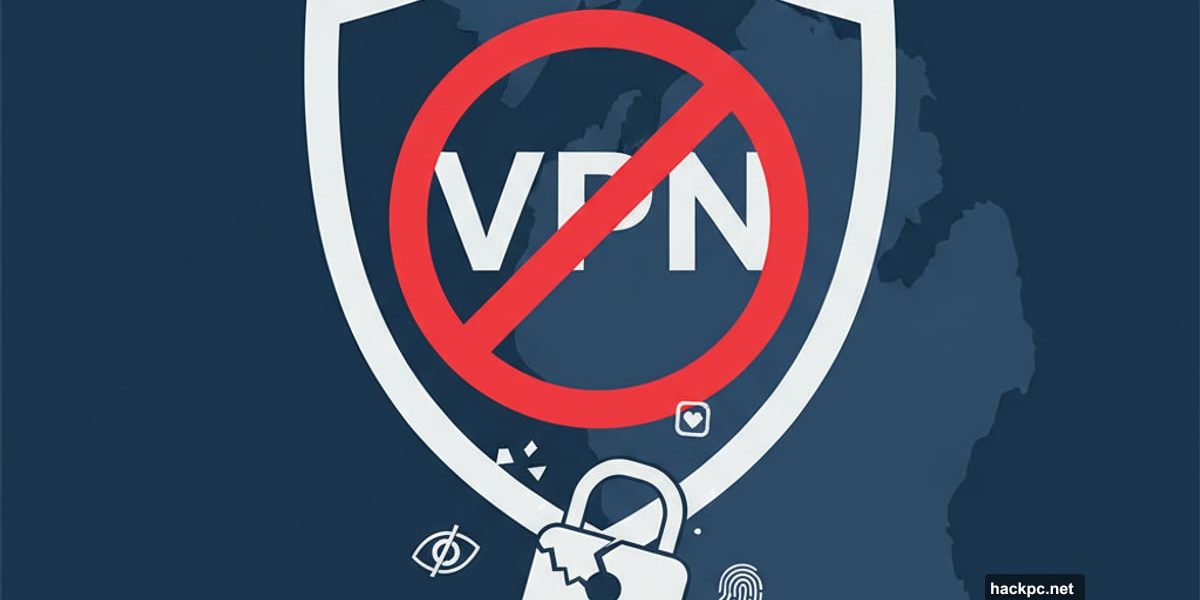
Two states just declared war on digital privacy tools. Their excuse? Protecting children online.
Wisconsin’s Senate Bill 130 forces websites to block known VPN addresses. Michigan’s House Bill 4938 goes further—it bans VPNs entirely. Violators face 25 years in prison and $500,000 fines.
But here’s what lawmakers won’t tell you. These bills create far worse problems than they claim to solve.
Age Verification Laws Backfire Hard
Online age checks sound reasonable on paper. Then reality hits.
Millions of people now upload government IDs and facial photos to third-party verification companies just to browse legal content. Those companies become massive targets for hackers.
The breaches are already happening. AU10TIX left verification data exposed online for over a year. Tea app leaked 72,000 user images, including 13,000 ID photos. Discord got hit recently—cybercriminals stole 70,000 ID images and demanded ransom.
So you hand over your full name, birthdate, address, nationality, and face to prove you’re old enough to view content. Then criminals steal that data in a breach. Now you’re dealing with identity theft because you wanted to visit a website.
That’s the real danger nobody’s addressing.
VPNs Block Age Verification. Lawmakers Noticed
Virtual private networks encrypt your internet traffic and mask your real location. Connect to a VPN server in a different state or country, and websites think you’re browsing from there instead.
This functionality helps people bypass geo-restrictions on streaming services. It also lets users avoid age verification requirements by appearing to connect from locations without such laws.
VPN usage exploded as states rolled out verification mandates. Wisconsin and Michigan lawmakers saw the pattern and decided to kill the workaround instead of questioning their approach.
Plus, they’re targeting the wrong problem entirely.
Free VPNs Flood the Market With Malware
Here’s the real crisis brewing. New users rushing to download VPNs don’t understand the risks.
Thousands of VPN apps exist online. Many offer free service. Most are dangerous.
Google just issued warnings about malicious VPN apps disguised as legitimate services. Once installed, they deliver info-stealers, remote access trojans, and banking trojans. Your browsing history, private messages, financial credentials, and cryptocurrency wallets become targets.
One “verified” free VPN with Google’s official badge was caught spying on users and capturing screenshots. Eighteen of the most popular VPN apps turned out to have sketchy ownership and posed serious privacy risks.
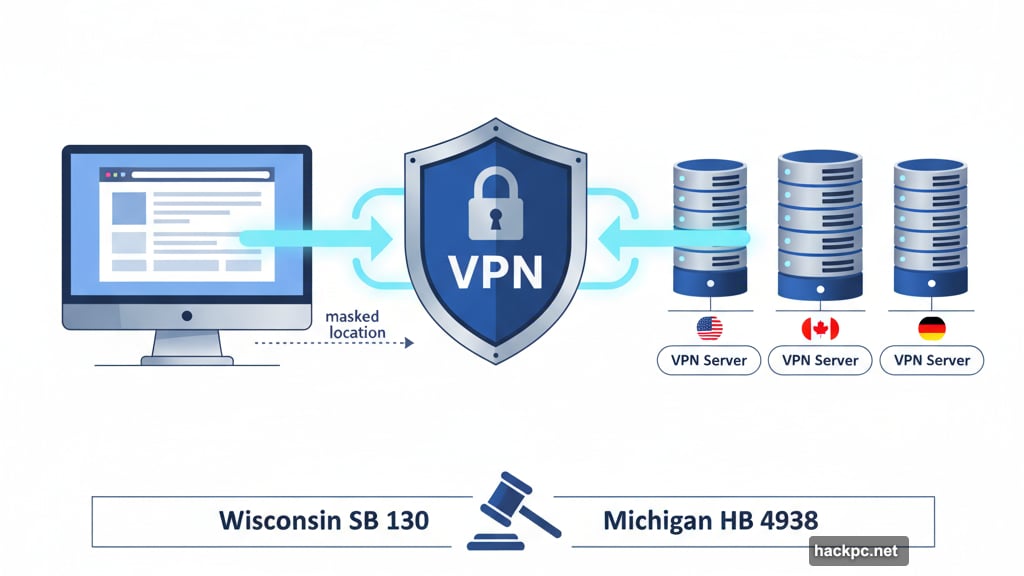
So age verification laws push people toward VPNs. Desperate users download sketchy free apps. Cybercriminals exploit those apps to steal data.
Meanwhile, legitimate VPN users trying to protect their privacy get caught in blanket bans.
Michigan’s Proposed Ban Goes Nuclear
Michigan’s House Bill 4938 doesn’t mess around. It demands internet service providers “actively monitor and block known circumvention tools.”
The bill prohibits promoting or selling VPNs to access restricted material. Remember those penalties? Up to 25 years in prison and $500,000 fines.
But VPNs serve crucial purposes beyond bypassing content restrictions. Activists use them to hide internet activity from surveillance. Whistleblowers rely on VPNs to communicate safely. People living under repressive regimes need VPNs to access information and avoid censorship.
Average users depend on VPNs to keep their browsing private from internet service providers who harvest and sell data.
Michigan’s bill threatens all of that. Plus, enforcement becomes a nightmare. ISPs would need to detect and block VPN traffic constantly. Quality VPNs already use obfuscation techniques that disguise traffic as regular internet activity.
So the bill either fails to achieve its goal or forces an arms race between VPN providers and ISPs. Neither outcome helps children.
Finding Safe VPNs Takes Real Work
Not all VPNs deserve suspicion. Reputable services exist and provide genuine privacy protection.
The challenge is identifying trustworthy options. Don’t rely solely on app store ratings or verification badges. That “verified” VPN spying on users proved those markers mean nothing.
Instead, research VPN ownership thoroughly. Read reviews from independent security experts. Study privacy policies with attention to what data gets collected and who receives it.
Look for no-logs policies backed by third-party audits. Check whether VPN companies faced legal challenges and how they responded.
If you want free service, understand the tradeoffs. Most free VPNs make money by selling user data. Some inject malware to steal additional information. Using a dangerous free VPN can be worse than using no VPN at all.
Proton VPN‘s free tier is the one exception worth considering. It provides the same core privacy protections as paid tiers without bandwidth limits or usage caps.
For paid options, services like ExpressVPN, NordVPN, and Surfshark maintain strong reputations through consistent third-party audits and transparent operations. They cost money because privacy infrastructure isn’t free to maintain.
ISPs Can Block VPNs. Quality Services Fight Back
Websites and internet providers can detect VPN use through several methods. They block known VPN IP addresses, restrict certain network ports, or use deep packet inspection to analyze entire data packets.
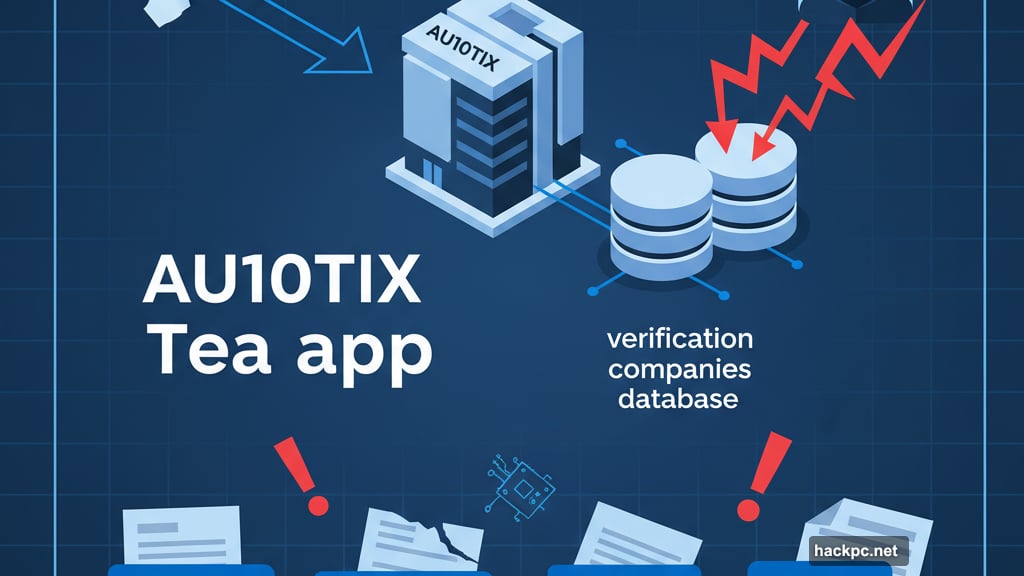
This is how Netflix tries to stop geo-unblocking. It’s also how repressive governments censor internet access within their borders.
But quality VPN providers deploy countermeasures. Obfuscation techniques disguise VPN traffic as regular internet activity, evading detection attempts.
Services like Proton VPN and NordVPN offer specialized protocols designed specifically to defeat deep packet inspection. The technical arms race continues regardless of legislation.
So Michigan’s proposed monitoring requirement either fails outright or burns massive ISP resources chasing sophisticated VPN traffic. Neither option protects children from anything.
The Real Costs Nobody’s Counting
These bills create cascading privacy disasters while claiming to protect minors.
Age verification requirements force millions to surrender sensitive personal data to third-party companies. Those companies get breached. Users suffer identity theft.
Desperate to avoid verification, people download dangerous free VPNs. Malware infections follow. Cybercriminals steal financial credentials and cryptocurrency.
Legitimate VPN users lose privacy tools they depend on for safety. Activists, whistleblowers, and people under authoritarian regimes face increased surveillance risks.
Meanwhile, determined minors still access whatever content they want. Kids are tech-savvy. They’ll find workarounds faster than lawmakers can write bills.
So we sacrifice everyone’s digital privacy, put millions at risk from data breaches and malware, and accomplish nothing meaningful for child safety.
That’s not protection. That’s security theater with catastrophic side effects.
Choose Privacy Tools Carefully
If you’re newly considering a VPN because of age verification laws, take time to research properly.
Don’t rush to download the first free app you find. Most free VPNs compromise your privacy instead of protecting it.
Read independent security reviews. Check VPN ownership and audit history. Verify no-logs policies through third-party verification reports.
Enable Google Play Protect on Android devices. Only download from official sources like app stores, never from random websites.
If cost matters, start with Proton VPN’s free tier. It’s the only free option that maintains genuine privacy protections.
Your digital privacy deserves better than panicked downloads and legislative overreach. These bills won’t protect children. But they will put your data at serious risk.
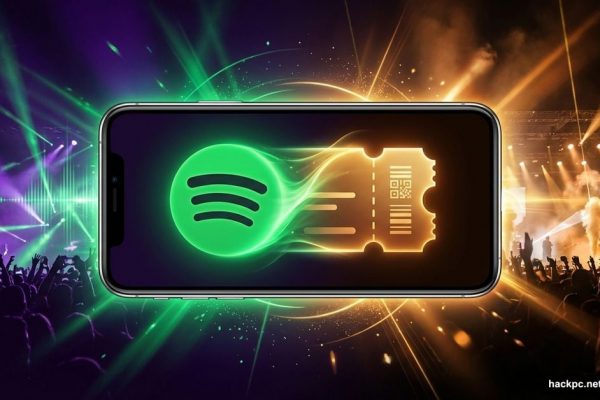
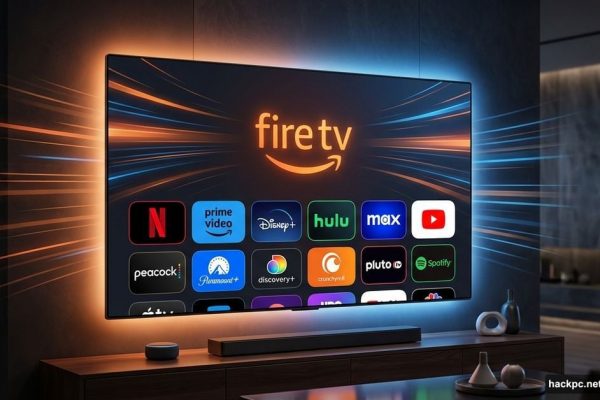
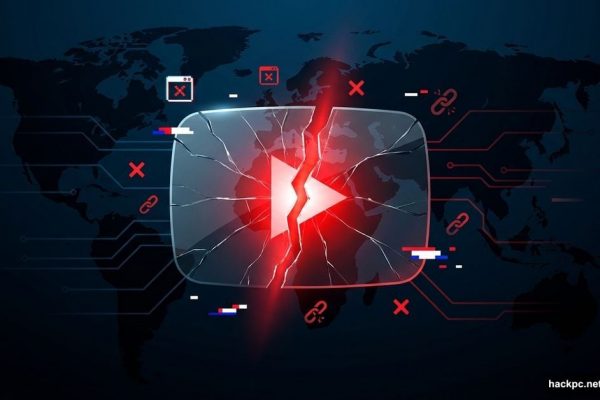
Comments (0)